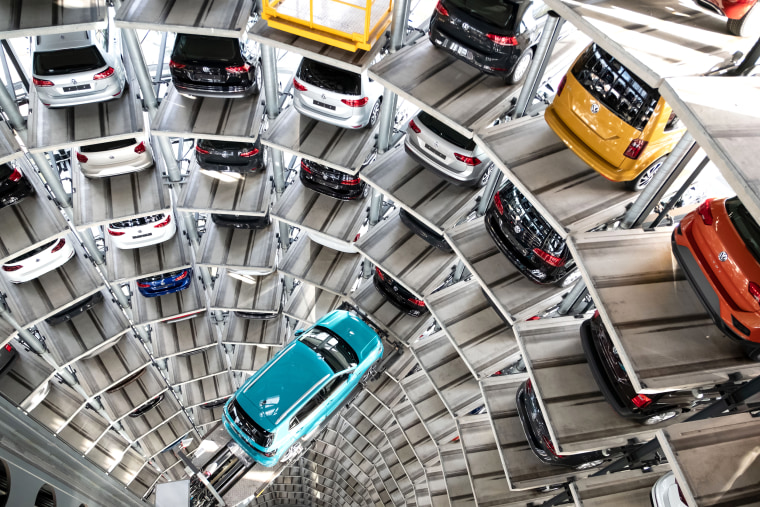President Donald Trump could delay auto tariffs on cars and car parts from the European Union, sources said Wednesday, just three days before a deadline on that deal.
Shares in Ford and General Motors ticked upwards on Wednesday's news that a 25 percent tariff was likely off the table for now, and the Dow Jones Industrial Average rose by 100 points.
CNBC first reported news of the administration’s plans, which were confirmed by a source briefed on the talks, an administration official, and two foreign officials. Trump has ordered a delay of up to six months in implementing any new tariffs against Europe, CNBC said.
Trump faced a May 18 deadline to decide whether to levy additional duties on European-made autos and automotive parts, a move that critics — including a bipartisan group in Congress — warn could have a substantial impact on American jobs and more broadly, the U.S. economy.
The deadline comes 90 days after the completion of a study by the U.S. Commerce Department that concluded auto imports pose a threat to American national security. The president could also take steps to put new tariffs on Japanese-made automotive products.
Representatives of the EU have been meeting with their counterparts in Washington, hoping to head off the new trade battle. The EU has raised the possibility of eliminating all automotive tariffs between the two regions. But should Trump move to enact new trade restrictions, EU officials have said they will respond in kind.
“We are already preparing a list of possible items that would be on that list,” Cecilia Malmström, the chief trade negotiator for the EU, said in an interview on Bloomberg Television earlier this week. “The moment this is official — if this happens, I still hope it won’t — then we would publish that list.” Malmström said that a response from Europe would “happen quite rapidly.’
Auto imports from Europe totaled $56.4 billion last year, according to Commerce Department figures, with Germany responsible for the bulk of that. The risk of new tariffs had sent shares of German manufacturers BMW, Daimler and Volkswagen reeling in recent days.
Critics say the effects of the tariffs, which amount to a new tax, could be substantial. Depending upon how the final numbers are calculated, the price of vehicles like the Fiat 500 and Volkswagen Golf could jump by thousands of dollars. Luxury products, such as the Mercedes-Benz S-Class or a Ferrari 488 Pista could see increases in the tens of thousands.
Even American-made vehicles could be impacted as many now rely on European-made parts and components. That’s especially true at plants like the new Volvo factory in Charleston, South Carolina. The nearby BMW plant in Spartanburg could face a double whammy, paying more for imported parts and then facing counter tariffs on the vehicles it ships to Europe. That could threaten BMW’s status as the largest exporter of American-made vehicles.
Toyota, which could find itself in the crosshairs should the president eventually move to hit Japan with new tariffs, has estimated that the price of its Kentucky-made Camry sedan, the most popular passenger car on the U.S. market, could rise by about $2,000 on average.
